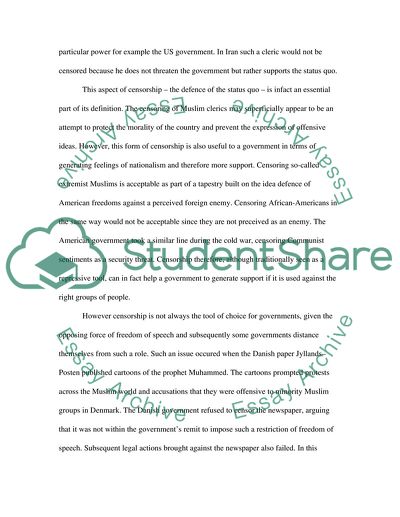Cite this document
(“Considiring censorship Essay Example | Topics and Well Written Essays - 1000 words”, n.d.)
Considiring censorship Essay Example | Topics and Well Written Essays - 1000 words. Retrieved from https://studentshare.org/miscellaneous/1551703-considiring-censorship
Considiring censorship Essay Example | Topics and Well Written Essays - 1000 words. Retrieved from https://studentshare.org/miscellaneous/1551703-considiring-censorship
(Considiring Censorship Essay Example | Topics and Well Written Essays - 1000 Words)
Considiring Censorship Essay Example | Topics and Well Written Essays - 1000 Words. https://studentshare.org/miscellaneous/1551703-considiring-censorship.
Considiring Censorship Essay Example | Topics and Well Written Essays - 1000 Words. https://studentshare.org/miscellaneous/1551703-considiring-censorship.
“Considiring Censorship Essay Example | Topics and Well Written Essays - 1000 Words”, n.d. https://studentshare.org/miscellaneous/1551703-considiring-censorship.


